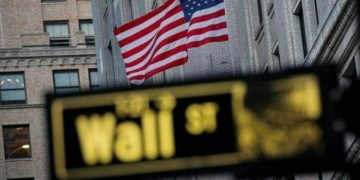By Bruno Federowski
SAO PAULO (Reuters) – Brazil’s central bank will cut interest rates to a record low next week and is likely to proceed with a further reduction at the start of next year in a bid to lift inflation expectations towards the official goal, a Reuters survey showed.
All but one of the 50 economists polled expect the central bank to slash the benchmark Selic interest rate by 50 basis points on Wednesday to an all-time low of 7.00 percent, following its two-day policy meeting.
The single dissenting forecaster, HSBC, expected a 25 basis-point cut to 7.25 percent.
Most of them forecast another cut at the bank’s February meeting but that was far from unanimous, with 18 expecting the central bank to stand pat.
Among those who predicted a February cut, 21 foresaw a final 25 basis-point reduction, to 6.75 percent, while nine saw a 50 basis-point decline.
That uncertainty may drive the central bank to keep its options open next week.
“In its last policy statement, the central bank said that if everything remained more or less the same, a 50 basis-point cut would be appropriate. Everything did, indeed, remain more or less the same,” UBS economist Fabio Ramos said.
“But a lot can change before the February meeting – the reform agenda may be derailed, we might see inflationary surprises and, of course, the pace of recovery is not set in stone.”
He was referring to President Michel Temer’s efforts to streamline the social security system and curb government debt, which lawmakers have resisted.
Concerns that inflation may undershoot the official year-end goal for the first time in two decades could drive the central bank to take a more dovish approach.
Lower rates could help Brazil’s recovery from the deepest recession in a century, which received a boost in the third quarter with a long-awaited revival of investments.
The economic pickup has yet to generate any meaningful inflationary pressures, however, with employment gains concentrated in off-the-books jobs and firms sitting on abundant idle capacity.
Consumer price inflation has for months hovered below the bottom-end of the target range of 4.5 percent, plus or minus 1.5 percentage point. Expectations for 2018 are also subdued, with a central bank survey of economists pointing to a 4 percent yearly rate.
Though a spike in energy prices helped to lift it from 18-year lows earlier this year, regulators unexpectedly opted for a lower power tariff in December.
Fusion Media or anyone involved with Fusion Media will not accept any liability for loss or damage as a result of reliance on the information including data, quotes, charts and buy/sell signals contained within this website. Please be fully informed regarding the risks and costs associated with trading the financial markets, it is one of the riskiest investment forms possible.
Source: Investing.com


























